Review of 2022
Happy New Year!
We’re kicking off with a review of last year. As many people think about diet at this time of year, you may like to re-visit the August posts about the energy balance model vs the carbohydrate insulin model of obesity. If you’re planning a January diet, one model suggests that your goal should be to create a calorie deficit; the other argues that managing carbohydrates and insulin is key. The diet that you might choose would be quite different based on these beliefs.
We had another really popular post this year – "Why eat carbohydrate?" (May). This was a freestyle post with me trying to answer that question from my years of research and experience. It seemed to resonate with many people who had undergone a similar learning journey.
This was another very varied year for topics – ranging from weight gained during lockdowns to the protein in plant burgers. There’s plenty on red meat and saturated fat, as ever. These nutrients keep getting battered, so the defence needs to continue also. A couple of big questions were also addressed. How much exercise is enough? Which is the best diet for type 2 diabetes? Is depression related to serotonin?
Here’s a quick summary of each post and a link to the full article for convenience.
January
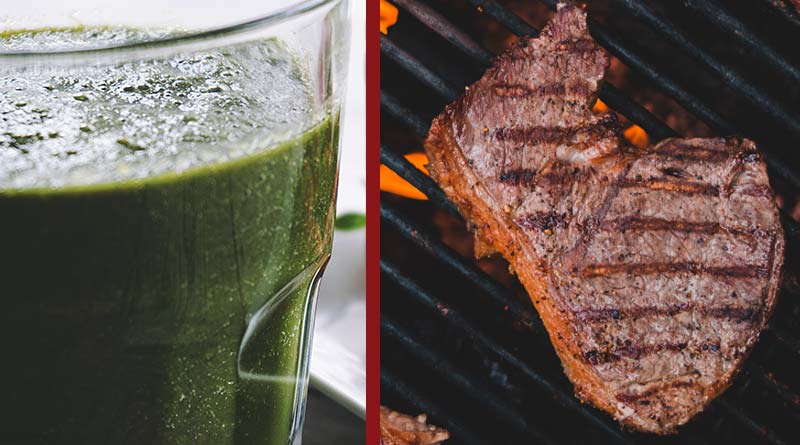
Which diet is best for type 2 diabetes? This (umbrella) review sought to find out which diet is best to achieve and maintain weight loss in people with type 2 diabetes (T2D). It found 19 meta-analyses of relevance. The review concluded that the greatest weight loss was reported with very low-energy diets, (intake of approximately 400–500 calories per day) and that low-carbohydrate diets were no better for weight loss than higher-carbohydrate/low-fat diets. However, there were several flaws in the study.
Saturated fat – a reprieve? Data from the European Prospective Investigation into Cancer (EPIC) were used for this study. The aim was to assess associations between dietary fat intake among people who developed heart disease vs those who didn’t. The researchers found that there was no association between the amount of saturated fat participants consumed and their risk of developing heart disease. It was claimed that people who ate more saturated fat from red meat and butter were more likely to develop heart disease and that those who ate more saturated fat from cheese, yoghurt, and fish were less likely to develop heart disease. Again, there were many flaws.
Who follows a carnivore diet? A study was published, which reported the results of a survey of over 2,000 people who followed a carnivore diet for at least 6 months. The study made no claims – it merely reported the characteristics, eating patterns, health perceptions/measurements and level of satisfaction of those following a diet based on animal foods.
Sarcopenia & Protein. A study was published that claimed 1) a lower Sarcopenia Risk Score (SRS) was associated with a higher protein intake and 2) a lower SRS was associated with increasing plant protein and reducing animal protein, while keeping total protein intake constant. The first claim made sense, the second claim didn’t. I explored further.
February

Metabolism, dieting & reaching goal weight. A paper was published, which examined the impact of a very low-calorie diet on metabolism and the time it takes to reach goal weight. It concluded that the drop in resting metabolic rate accounted for almost two thirds of the variation in the time taken to reach goal weight. This study provided further evidence that eating fewer calories leads to the body needing fewer calories. It’s a vicious cycle best avoided.
An insulin index of food. This post looked at a historic and influential academic paper – the Holt et al paper, published in 1997, which reviewed the insulin (and glucose) responses of 38 different foods. This paper made so many errors in design, making it a missed opportunity in an otherwise classic study. I went through what it found, the flaws, and what it should have done instead.
JCVI Conflicts of interest. The UK Joint Committee for Vaccination and Immunisation (JCVI) is supposed to be an independent expert committee. It has 15 core members. None of the members of the COVID-19 sub-committee of the JCVI declared conflicts of interests. The members work for organisations, which collectively have received approximately $1,000,000,000 – one billion dollars – from the Gates Foundation.
Cochrane review of low-carb diets. A 456 page Cochrane review was published. It examined low-carbohydrate diets vs balanced-carbohydrate diets for reducing weight and cardiovascular risk. This note focused on the weight comparisons.
March
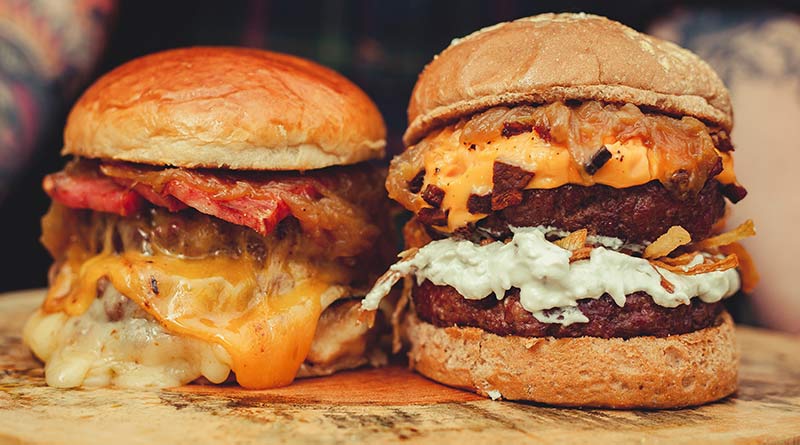
Global burden of disease. One of the most important challenges in the field of nutrition was published in The Lancet. It was a letter challenging the reliability of The Lancet flagship project "The Global Burden of Disease" (GBD). The letter focused on the dietary assumptions in the most recent GBD report (2019). Substantial changes occurred between the 2017 and 2019 reports and the impact was that deaths attributed to diets high in red meat (not even processed meat) increased 36-fold. This note examined what was challenged and why.
Will cutting meat & dairy make you live longer? A paper was published which generated the headline “Cutting down meat and dairy could help you live up to a decade longer." The paper was a modelling exercise and so assumptions made determined outcomes. This modelling exercise relied on other collations of nutritional population studies. These are inherently flawed and thus the flaws have been built upon and reiterated throughout this modelling process.
Legumes – optimal intake. Legumes are increasingly being promoted as the food group we should be consuming instead of animal foods. This note looked at recommendations for legumes in a number of global diets (EAT Lancet, Global Burden of Disease (2019)) and the evidence for those recommendations. This note also compared lentils with chicken liver for macro and micronutrients. There was one clear winner, and it wasn’t the lentils.
Low-carb diets, cortisol & testosterone. This was an impressive and well-conducted review, which examined the effect of low-carb diets on cortisol and testosterone in young, healthy, active, men. It shared non-findings as well as findings. Both were interesting.
April
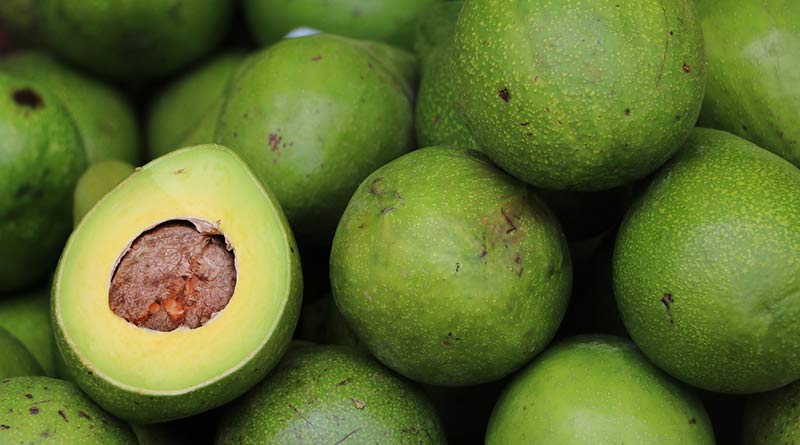
Meat & Life expectancy. A paper was published, which examined meat intake and life expectancy at a global level. It used data for 175 populations, which covered approximately 90% of the world’s population. The top-level finding was that life expectancy increases as meat consumption increases and child deaths are lower when meat intake is higher. The paper still had limitations, but at least it made more sense than papers claiming "our most ancient food – meat – is trying to kill us."
Avocados & heart disease. This week’s academic paper generated global news coverage. The headlines were "An avocado a week can cut heart disease risk by a fifth." The headline claim came from comparing non-consumers with those who consumed one avocado or more each week. This was for men and women pooled together. However, two tables in the paper confirmed that there were no significant results for women. i.e., avocado intake made no difference for women. This should have been made clear. There were many other subgroups for which the headline claim did not hold. These should also have been made clear. All epidemiological papers suffer from limitations. This paper suffered even more limitations than usual.
Fiber, CVD & inflammation. This week’s note reviewed a paper about fiber (total, cereal, vegetable and fruit fiber) and cardiovascular disease (CVD) events and markers of inflammation. The researchers claimed that cereal fiber intake was consistently associated with lower inflammation and cereal fiber intake was associated with lower CVD incidence. The claims were false. The claims were based on non-fully-adjusted models. There were no relationships between fiber (any type) and CVD incidents in fully adjusted models.
Meat & saturated fat. It is generally believed that meat is "full of saturated fat." This note presents four facts about fat, which undermine this belief. It does more than this, to completely undermine the notion that meat is full of saturated fat.
May

A new look at statins, LDL-Cholesterol & CVD. Most papers presenting the benefits of statins do so in relative risk terms – with claims of benefits of approximately 20% being typical. This week’s paper set out to evaluate the absolute risk reduction for relationships between statins, LDL-cholesterol and deaths/disease. The differences were striking and could/should have an impact on the patient-doctor consultation.
Weight gain during lockdown. This was a review of three meta-analyses (pooling together many papers) which examined weight gained in lockdown. The meta-analyses collectively covered hundreds of thousands of people of different ages and from different regions of the world. The evidence showed that lockdowns made obesity worse.
Why eat carbohydrate? This was a ‘freestyle’ post – me setting out general observations from throughout my research career – and it proved to be the most popular post I’ve ever written! Why do we eat carbohydrate? Why should we? Why shouldn’t we?
Fiber & dementia. This was a poor paper. It examined 4,000 Japanese people and it looked for associations between fiber intake and dementia diagnoses. Some things were not adjusted for. The adjustment that was done didn’t look right. Non-significant results were presented as findings. There were more non-findings than findings. There were claimed findings for soluble fiber, but not insoluble fiber. There were claimed findings for people with dementia without stroke, but not for dementia with stroke. There were claimed findings for potatoes, but not for fruit and vegetables. All of this needed explaining, but this didn’t happen.
Cholesterol & Coffee. This note looked at the association between coffee consumption and total cholesterol. Coffee contains two substances that are reported to increase cholesterol levels. There were a number of inconsistent findings that weren’t explained. In fact, there was more unexplained, than explained.
June

Sweeteners & cancer. This week’s paper was the latest output from the French NutriNet-Santé population study. It examined the association between artificial sweeteners and cases of cancer. The study found a smaller association than might be expected. It suffered from the usual flaws of epidemiology.
Time restricted eating & weight loss. This note reviewed a randomised controlled trial, which assessed whether calorie restriction with time-restricted eating was better than calorie restriction alone. There were no significant differences between the two groups for any measure of interest. Time-restricted eating made no additional difference beyond the calorie restriction. The rest of the note reviewed the wider literature on time-restricted eating to see if the right study had been done and what we know generally about this topic of increasing interest.
Should we be vegan? This note summarised the history of the Public Health Collaboration conferences since the first one was held in 2016. It contained the link to my presentation from the 2022 conference. The presentation was called “Should we be vegan?” It summarised and countered the three arguments that are central to the notion that we should be vegan: 1) The nutritional argument – it’s healthier; 2) The animal argument – it’s better for animals; and 3) The planet argument – it’s better for the planet.
Is HDL cholesterol bad? A paper claimed that very high HDL-cholesterol levels are associated with higher risk of dying in individuals with coronary artery disease. The researchers described this finding as "paradoxical" because HDL-cholesterol is called good cholesterol. (It’s only paradoxical to those who believe this). There were other interesting findings.
July
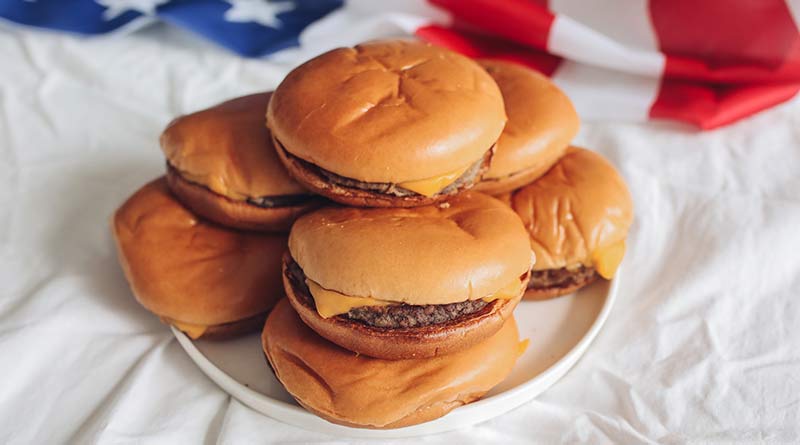
What do Americans eat? This note, published on Independence Day, reviewed what Americans eat. The source was an official publication estimating food consumed. The report focused on whether Americans achieve the Dietary Guidelines; not whether the guidelines are healthy.
Reflections on The Great Plant Based Con. This was a guest post by Jayne Buxton, who had written "The Great Plant Based Con." Its focus was the vitriol that she got after the book was published.
Kellogg’s, milk & sugar. In an effort to address general, and specifically childhood, obesity, the government in England proposed restrictions on promotions of foods deemed unhealthy. In April 2022, Kellogg’s took the government (England) to court to try to stop the restrictions. This note covered the restrictions, Kellogg’s objections and the outcome of the court case.
Eggs, cholesterol & mortality. Yet another population study. Yet another attack on eggs. The study was in two parts. Both had inconsistencies and flaws and lacked plausible explanations or consideration of the nutritional value that would be lost without eggs or dietary cholesterol.
August

Keto vs Mediterranean diet for T2D. This was a review of a randomised controlled trial, which compared Keto and Mediterranean diets. The study concluded that there was no significant difference between the HbA1c levels at the end of the two diets (the measure of glucose in the blood over 3 months). That was not the whole story.
Fats & bladder cancer. This reviewed a paper which examined the association between dietary fat intake (all fats, saturated fat, monounsaturated fat, polyunsaturated fat and dietary cholesterol) and incidence of bladder cancer. The paper was reported in the media as "Saturated and animal fats ‘could increase bladder cancer risk in men." The study found nothing related to saturated fats. The claim for animal fats was based on a 0.06g difference in intake, which is barely measurable. There were other issues.
Energy balance vs carbohydrate insulin model of obesity – Part 1. There is a debate going on between Ludwig et al and Hall et al about the best model of obesity. Ludwig et al favour The Carbohydrate-Insulin Model of obesity. Hall et al favour the Energy Balance Model of Obesity. Part 1 looked at the Hall et al paper.
Energy balance vs carbohydrate insulin model of obesity – Part 2. This second note reviewed the most recent article by Ludwig et al (July 2022), which was a response to Hall et al’s May 2022 paper. It presented areas of agreement and ongoing disagreement. It also presented my view of the debate.
How much exercise is enough? This looked at a population study of almost half a million US adults, followed for approximately 18 years, to assess how much and what type of exercise is associated with lower mortality. It may encourage some people that enough may not be as much as they think.
September

Lean Mass Hyper-Responders. The term “Lean Mass Hyper-Responder” was developed by Dave Feldman in reference to those with the combination of very high LDL and HDL cholesterol alongside low triglycerides. This seemed to be a common pattern among those who were lean, fit, and metabolically healthy when adopting a low carbohydrate diet. This week’s note looked at two papers, which have examined this phenomenon.
The lipid energy model. This note built on the one about lean mass hyper-responders. It examined why cholesterol is observed to rise in these people. It looked at a hypothesis called the Lipid Energy Model, which offered an explanation. It also looked at alternatives proposed by Dr Nadir Ali and Dr Malcolm Kendrick.
Is depression related to serotonin? This was an interesting and important study, which examined evidence for "the serotonin theory of depression." It asked six good research questions. It found no convincing evidence that depression is associated with, or caused by, lower serotonin concentrations or activity. It should change the way we treat depression, but it won’t.
Protein in meat vs Beyond Burger. A number of studies have looked at the nutritional value of meat vs plant burgers. This one looked at the amino acid (protein) response in the body post digestion. Overall, the plant burger was poor in comparison with three meats. There were some study design issues, which were unfortunate as otherwise this was an important and interesting paper.
October
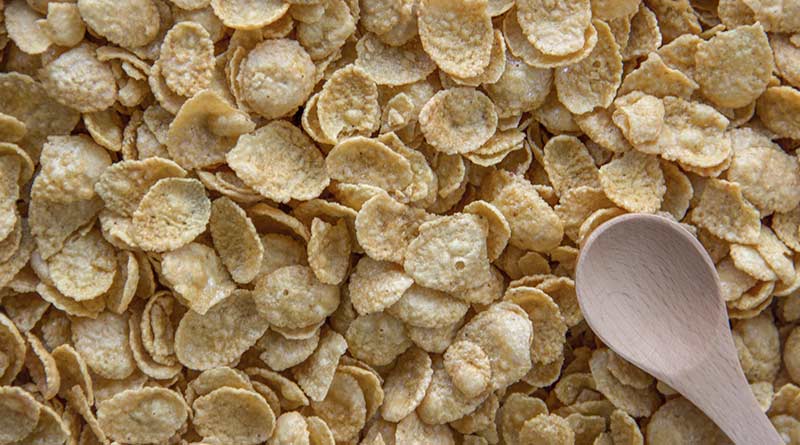
Fibre – ask why, not how. The paper reviewed this week assumed that there is an optimal fibre intake (25-30g daily) and it investigated how people can be encouraged to consume this. It didn’t ask why people should consume fibre. It should have done.
Plant-based diets & mortality. This week’s paper looked at plant-based diets in three ways – intake of all plants, intake of ‘healthy’ plants and intake of ‘unhealthy’ plants. It made some positive conclusions about plant-based diets but failed to report findings that didn’t support the plant-biased narrative.
Estimating the environmental impacts of 57,000 ‘foods’. This paper was one of the worst I have reviewed. It was a modelling exercise, based on other modelling exercises. The assumptions were vital but not transparent. It concluded that ruminants grazing in fields are the worst foods and sugary drinks are the best.
Vitamins, cocoa & cognitive function. A large, long, randomised controlled trial investigated whether cocoa extract and/or a multivitamin-mineral could impact cognitive function. The study found that cocoa extract had no effect on cognitive performance, but that the multivitamin-mineral did. That wasn’t the whole story.
Does meat cause CVD & T2D? An umbrella review was conducted with the aim of examining all evidence related to meat intake and cardiovascular disease (CVD) and Type 2 Diabetes (T2D). This review tested associations from all available studies against the Bradford Hill criteria. It found nothing to implicate any meat (processed or unprocessed) and CVD. It claimed one finding for unprocessed meat and T2D, but that did not withstand scrutiny.
November

TRE, HIIT and HbA1c. A 7-week randomised controlled trial was conducted with 131 women doing 4 interventions: a control group; a time restricted eating (TRE) group; a high intensity interval training (HIIT) group and a group doing both TRE and HIIT. The primary outcome did not change significantly, but a number of secondary outcomes did. This note explored whether TRE was better than HIIT, or if the combination was better than both? And for which measures?
Diabetes Unpacked. This note fell on World Diabetes Day, so I shared the introduction that I wrote for a book called "Diabetes Unpacked." This was a collaboration with a number of authors to raise funds for The Noakes Foundation and to assemble consistent alternative views on diabetes.
Saturated fat – an end to the myth? This note was about an article that investigated the claim that saturated fat clogs arteries and causes heart disease. It concluded that there is no evidence to support this claim. I reviewed the paper and the impact that it sadly won’t have.
The only diet to have reversed heart disease? A recent TV debate between proponents of animal-based vs plant-based diets revealed that the primary piece of evidence relied upon by vegans is a study from the 1990s. The study in question was a randomised controlled trial (RCT) which, over a five-year period, demonstrated a reversal in one measure of atherosclerosis. The RCT involved five significant changes and a vegan diet wasn’t even one of them!
December

Can governments nudge away obesity? This reviewed a report written by an organisation called the Behavioural Insights Team (BIT). This organisation had a substantial impact manipulating human behaviour during Covid-19 measures. The BIT appears to want to maintain its influence and took it upon itself to review government obesity measures. It did a poor job of critiquing them.
Does intermittent fasting raise the risk of early death? The short answer is "no"! The longer answer is that there were non-findings, as well as findings. Many findings contradicted each other. Most important was the fact that meal skipping was a marker of an issue that could increase the risk of death (e.g., poverty, having insufficient access to food). Skipping meals was not a cause of anything in itself.
Top tips for festive eating. As the title suggested, this was a pre-Christmas note to share my top 10 tips for healthy eating when bad food is all around! I hope it worked for you!
Who knows what the topics will be this year? Thank you so much for your continued support as I await the next diet and health story to unpack.

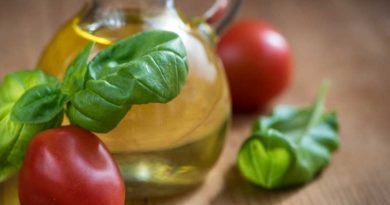
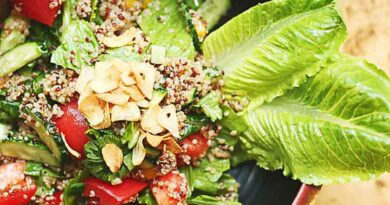

I just read your 2022 review and logged in to read the Kellogg story as somehow I managed to miss this one. Thank you for your excellent coverage and your high standards. What resonates with me is the honesty and integrity of your analysis, discussion and conclusions in contrast to many of the arguments and articles under scrutiny. Thank you for cutting through the crap and the confusion marketing strategies at play.
Hi Bruce
That’s so kind of you:-)
Thank you and may 2023 be a happy new year!
Best wishes – Zoe